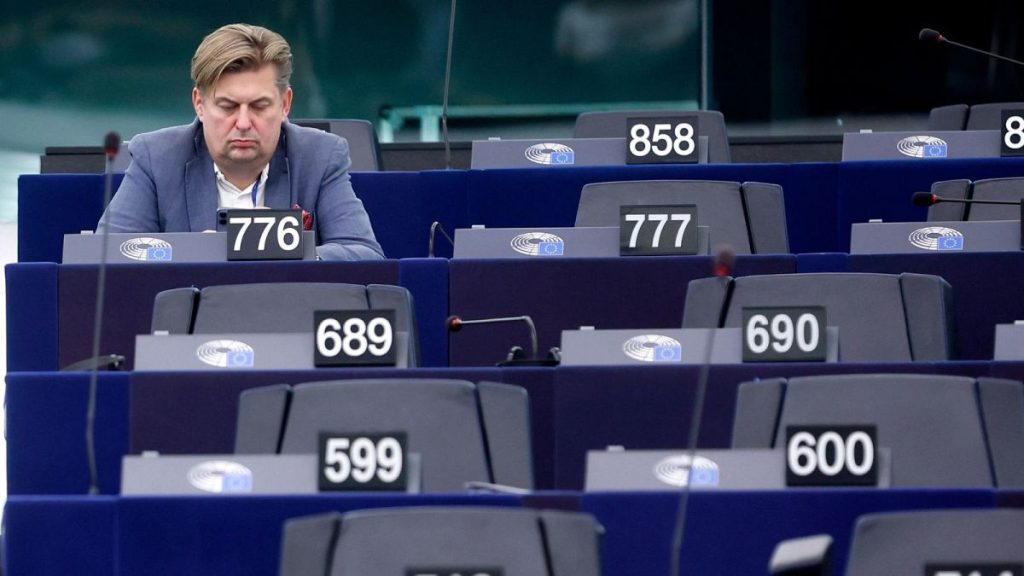As MEPs in the European Parliament return to work after the summer break, there are 32 unattached members who do not belong to any political group. These non-attached MEPs sit at the back of the hemicycle, either by choice or due to various reasons. While being independent comes with perks such as being able to participate or vote without having to consider larger group calculations, it also has limitations in terms of amendments, speaking time, and representation in administrative structures. Euronews examines the unattached MEPs in the current Parliament and looks into how they ended up in this situation.
Some of the non-attached MEPs in the European Parliament have extreme political views that set them apart from others. For example, Grzegorz Braun from Poland’s Confederation Party has had conflicts with the Polish justice system for his controversial actions. Similarly, Milan Mazurek from Slovakia has faced backlash for his anti-semitic and anti-Roma statements. These MEPs found themselves unattached, possibly due to their extreme views and actions that were not aligned with any established political group. Romanian MEP Diana Șoșoacă is another example who chose to be independent rather than compromise her strong beliefs on issues like LGBTIQ rights and Ukraine annexation territories.
There are also MEPs in the European Parliament who bring a sense of humor and entertainment to the otherwise serious political setting. Fidias, a 24-year-old YouTuber-turned-MEP, engages with his 2.6 million followers by sharing his activities in the Parliament, offering insights, and seeking their opinions on various matters. Additionally, there are literal comedians like Sibylle Berg and Martin Sonneborn from Germany’s satirical “Die Partei”, who use humor as a tool to convey political messages. These MEPs may not fit the traditional mold of politicians, but they bring a different and engaging perspective to the European Parliament.
Some MEPs choose to become non-attached after realizing that their views do not align with their previous political groups. Far-left parties have broken away from their groups due to disagreements on issues such as migration, climate change, and foreign policy. These MEPs prioritize their principles over party affiliations and opt to remain independent to stay true to their beliefs. Others, like Lukas Sieper from Germany’s Party of Progress, advocate for pragmatism and a focus on evaluating laws based on their merit rather than ideology. These MEPs may feel that the existing political groups do not fully represent their values, leading them to become unattached in the European Parliament.
The status of being a non-attached MEP is not always permanent, as negotiations and potential group affiliations can change the situation. MEPs like Alvise Pérez from Spain’s “The Party is Over” may join established groups after negotiations, while dissidents from left-wing parties like Die Linke in Germany are considering forming new coalitions with other MEPs. These discussions are ongoing and may result in new group affiliations for these MEPs, potentially altering their status as unattached members. The process of joining a group requires a certain number of MEPs from different member states to be officially recognized, making it a complex and challenging task for those seeking to form new alliances in the European Parliament.
Overall, the 32 unattached MEPs in the European Parliament come from diverse backgrounds and hold varying political views. Some choose to be independent due to their extreme beliefs, others bring humor and entertainment to the political arena, and some break away from existing groups to stay true to their principles. The status of being a non-attached MEP can be both liberating in terms of freedom to vote and participate independently, but also limiting in terms of visibility and influence. The future of these MEPs may involve joining established groups or forming new coalitions with like-minded colleagues, as they navigate the complex political landscape of the European Parliament.













